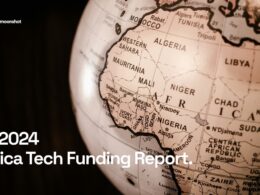The European Union has taken a major step in supporting Africa’s clean energy ambitions. In September 2025, during the Global Citizen Festival and UN General Assembly week in New York, Ursula von der Leyen, President of the European Commission, announced a €545 million (approximately $600 million) pledge to accelerate renewable energy access and infrastructure across Africa.
This commitment is part of the Global Gateway Initiative, Europe’s flagship program designed to mobilize over €300 billion globally for sustainable and digital infrastructure. The African clean energy pledge — coordinated under the Team Europe framework — will directly support renewable electrification, wind and hydro projects, and off-grid power systems in underserved communities.
“Access to clean, reliable energy is the foundation of opportunity,” von der Leyen said. “It empowers education, innovation, and digital transformation across Africa.”
(Read the official announcement on the European Commission’s website)
🔋 A New Era for Africa’s Energy and Technology Ecosystem
While this funding is framed around renewable energy, its ripple effects stretch far into Africa’s technology and innovation sectors. Energy reliability has long been one of the biggest obstacles to tech scalability on the continent. From unreliable grids to costly diesel generators, startups and digital companies have had to adapt to constant disruption.
The EU’s clean energy funding could change that. By expanding renewable power — particularly solar, wind, and hydro-based systems — Africa can unlock a new era of tech-enabled growth, especially for startups operating in education technology (edtech), fintech, agritech, and healthtech.
Stable and sustainable energy means:
- Reliable power for data centers and cloud infrastructure.
- Off-grid internet access in rural communities.
- Reduced operational costs for tech companies.
- Empowerment of women and youth in green and digital jobs.
According to the African Development Bank (AfDB), over 600 million people in sub-Saharan Africa still lack access to electricity. The EU’s commitment could bring power — and digital access — to millions of households and businesses.
⚡ The Details Behind the EU’s $600M Clean Energy Pledge
This latest funding package falls under the EU’s “Scaling Up Renewables in Africa” campaign. It combines public and private investment through the Team Europe approach, which includes:
- EU institutions and member states (France, Germany, Spain, Italy, and others).
- European Investment Bank (EIB) and development agencies such as KfW and AFD.
- Local African governments and energy ministries as project partners.
The program will invest in large-scale and decentralized projects — from national grid improvements to off-grid renewable systems, microgrids, and community-based solar hubs.
🌞 Country Case Studies: Where the Impact Will Be Felt
| Country | Project Focus | Potential Tech Impact |
|---|---|---|
| Cameroon | Rural electrification for ~687 communities | Enables community WiFi hubs, e-learning centers, and digital entrepreneurship. |
| Lesotho | Wind and hydro power development | Supports resilient off-grid internet and local tech operations. |
| Madagascar | Mini-grids for remote villages | Makes local data storage, fintech access, and remote education feasible. |
| Côte d’Ivoire | Expansion of high-voltage transmission lines | Strengthens grid reliability for startups and industrial zones. |
| Somalia | Renewable microgrids and solar networks | Facilitates access to telemedicine and digital payment systems. |
These projects align closely with Africa’s growing digital needs — bringing energy where innovation is happening, from small coding schools to AI startups in rural areas.
🌐 The Intersection of Clean Energy and Digital Inclusion
Power is the invisible backbone of Africa’s digital revolution. Without it, connectivity, innovation, and inclusion remain limited.
This EU pledge offers more than financial support — it’s a signal of partnership between Europe and Africa in building a sustainable digital future.
How Energy Enables Africa’s Tech Growth
- Expanding Connectivity: Solar-powered base stations and Wi-Fi towers make remote internet feasible.
- Boosting Education: Edtech platforms can operate 24/7 without outages.
- Improving Healthcare: Reliable power supports telemedicine and data-driven health systems.
- Driving Financial Inclusion: Fintech and mobile banking thrive in areas with stable electricity.
- Accelerating AI & Cloud Computing: Stable grids and renewable energy make data centers viable outside major cities.
This convergence of clean energy and digital infrastructure creates a foundation for inclusive growth, job creation, and climate resilience.
🚀 Challenges and What Comes Next
Despite the optimism, challenges remain. Infrastructure rollout requires strong governance, transparency, and local technical capacity. The success of these projects will depend on:
- Maintenance & Local Ownership – Empowering local engineers and communities to sustain installations.
- Financing Models – Innovative pay-as-you-go or micro-leasing systems for solar and battery adoption.
- Private Sector Partnerships – Incentivizing African startups to build services around clean energy ecosystems.
- Policy Alignment – Governments need clear renewable energy incentives and predictable regulatory environments.
Still, the opportunities are undeniable. A $600M clean energy commitment from Europe can ignite new momentum — not only for sustainable development but also for Africa’s digital transformation.
💡 Looking Ahead: A Tech-Powered Green Future
The EU’s renewable push is more than just an environmental initiative. It represents a tech enabler, a startup catalyst, and a social equalizer.
Imagine a future where:
- A student in northern Nigeria charges her laptop from solar power while learning to code.
- A startup in rural Kenya builds an app powered by an off-grid data center.
- A remote health clinic in Madagascar runs diagnostics via stable solar energy.
That is the promise of the Green Tech Transition in Africa — a movement that merges sustainability, inclusion, and innovation.
“Technology and clean energy are not separate revolutions — they are one and the same,” says a senior EU official. “You can’t digitize Africa without electrifying it.”













Comments 3